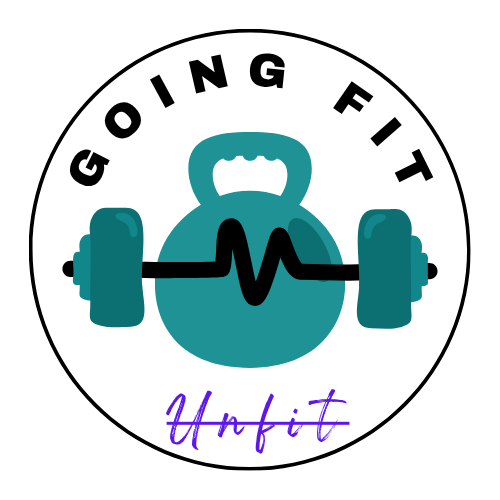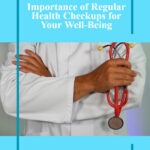Have you noticed that your memory seems to be slipping more often lately? If so, don’t ignore it. Your memory is like a window into your overall health, and when it starts acting up, it signals that something might be amiss. Your well-being and memory are closely connected, so even small health issues can trigger memory loss.
If memory lapses have become a recurring problem, it’s time to take action and get yourself checked out. In this article, we’ll discuss a few common health factors that can affect your memory and provide practical solutions to address them.
Let’s get started on the journey to better memory and overall well-being.
Types of Memory and Their Functions
- Short-Term Memory: Helps with immediate tasks, like remembering a phone number briefly.
- Long-Term Memory: Stores information for the long haul, like your childhood memories.
- Working Memory: Juggles information while doing tasks, like mental multitasking.
Studies show that poor sleep can lead to forgetfulness. Therefore, understanding how health factors impact these memory types is crucial for better cognitive function.
what causes memory loss and forgetfulness
Memory Loss and Hormones
Hormonal imbalance occurs when the body’s hormone levels are disrupted, affecting various functions. In men, low testosterone levels can lead to memory problems, as testosterone supports brain health. Similarly, in women, low estrogen levels during menopause may contribute to memory loss, along with other symptoms like hot flashes.
Fortunately, bioidentical hormone therapy is a treatment that uses hormones that are structurally identical to those naturally produced by the body. It aims to restore hormone balance, potentially alleviating memory issues and other imbalances-related symptoms.
The good news is that this therapy is available in many clinics, so you can find one in your area. You can speak with the experts there and determine if you are the right candidate for this therapy. Simply search for “bioidentical hormones therapy near me” or “bioidentical hormone pellets,” and you’ll find clinics and professionals specializing in this treatment in your area. It’s an accessible way to explore potential solutions for hormonal imbalances and their effects on memory and overall health.
Sleep Problems and Memory Loss

Sleep quality and sleep disorders play an essential role in your memory and overall well-being. Poor sleep can lead to memory issues over time.
Studies have shown that people with sleep disorders are at a higher risk of developing memory problems. For example, sleep apnea, a common sleep disorder, can reduce oxygen flow to the brain, affecting memory.
To improve your sleep quality and manage sleep disorders, consider these steps:
- Stick to a consistent sleep schedule.
- Create a relaxing bedtime routine.
- Ensure your sleep environment is comfortable and dark.
- Limit screen time before bed.
- Avoid caffeine and heavy meals close to bedtime.
- Exercise regularly.
If sleep problems persist, consult a healthcare professional for guidance and treatment options.
Brain Fog Vitamin Deficiency
Nutritional deficiencies happen when your body doesn’t get enough essential nutrients, like vitamins and minerals, from your diet. These nutrients are like the building blocks your body needs to function properly, including supporting your brain and memory.
When you lack these vital nutrients, it can lead to memory problems and other health issues.
Therefore, it is important to focus on a balanced diet that includes:
- A variety of fruits and vegetables for vitamins and antioxidants.
- Whole grains for energy and brain health.
- Lean proteins like fish, poultry, and beans.
- Healthy fats from sources like nuts, seeds, and olive oil.
In addition, if you’re not sure about your nutritional needs or have specific concerns, consulting a healthcare professional or a registered dietitian can be helpful. They can assess your individual needs and help you create a diet plan that supports your overall health, including your memory.
Stress and Anxiety Forgetfulness
Chronic stress and anxiety are prolonged feelings of worry, tension, or fear that can have a significant impact on your mental and physical health. These feelings trigger the release of stress hormones, like cortisol, which, when elevated over time, can negatively affect your brain and memory. They can lead to memory loss, difficulty focusing, and poor cognitive function.
So, it is important to manage your stress and anxiety. You can do this by following the below tips:
- Practice relaxation techniques like deep breathing and meditation.
- Engage in regular physical activity to reduce stress hormones.
- Maintain a balanced diet with nutritious foods.
- Ensure you get enough quality sleep.
- Connect with friends and loved ones for emotional support.
- Seek professional help, such as therapy or counseling, when needed.
Taking steps to manage chronic stress and anxiety can not only improve your memory but also enhance your overall well-being.
Conclusion
Our memory reflects our overall health, and understanding this connection is crucial for maintaining cognitive function and quality of life. The good news is that you can significantly improve your memory and overall well-being by addressing the above health issues and making positive lifestyle changes.
Whether it’s seeking professional guidance, adopting healthier habits, or considering therapies like bioidentical hormone therapy, taking action is the key to a sharper memory and a healthier you.
FAQs
How do hormonal imbalances affect memory, and can it be reversed?
Hormonal imbalances, such as low testosterone in men or low estrogen in women, can impact memory. In some cases, bioidentical hormone therapy may help restore balance and improve memory.
How can I manage chronic stress and anxiety to protect my memory?
Managing stress through techniques like meditation, exercise, and counseling can help reduce the negative impact of chronic stress and anxiety on memory.
When should I seek professional help for memory issues?
If memory problems persist or worsen, or if you suspect an underlying health condition, it’s advisable to consult a healthcare professional for evaluation and guidance.
What resources can I use to find specialists offering bioidentical hormone therapy near me?
You can easily find bioidentical hormone therapy specialists in your area by conducting a Google search with the keywords “bioidentical hormone therapy near me” or “bioidentical hormone pellets.”
How can I get the right nutrition to support my memory?
Focus on a balanced diet that includes a variety of fruits, vegetables, whole grains, lean proteins, and healthy fats. In addition, consulting a registered dietitian can help you create a personalized nutrition plan.












Thank you for sharing
Thanks for this amazing post, I always worry about memory loss.
memory is so mportant, and we need to take stesp to preseve it
I agree! I’ve had bad allergies, sinus things and it’s been making me foggy. I hate it. I hope they find a way to help memory loss
Very good article and good information. I am one of those persons who sleeps very little so this information is super important for me.
Sorry to hear you aren’t sleeping well! I haven’t been sleeping the best either lately